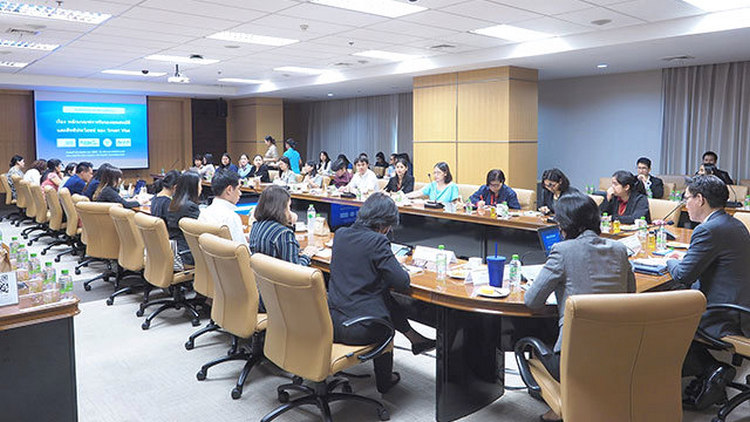
The Interior Ministry has issued fresh guidelines for the much-discussed Destination Thailand Visa (DTV) and the boost for visa-exempt tourists from 30 to 60 days. The DTV is seen as groundbreaking as it frees remote workers from needing a work permit as long as their employment is with overseas companies or contractors. The ministry has now doubled-down by insisting that “such work must not impinge in any way on the Thai economy”, a very broad restriction.
Meanwhile, those tourists entering Thailand with a visa-exempt 60 days – the vast majority – must watch their step when they are not sightseeing. An initial announcement by the Tourist Authority of Thailand last July mentioned that “ad hoc or urgent work” could be undertaken for up to 15 days provided the tourist had notified the Department of Labor. Examples given were attending conferences or meetings and – more surprisingly – repairing machinery, auditing accounts or inspecting products.
The Interior Ministry now states that, whilst attending occasional meetings is ok, temporary work permits (maximum of two for 15 days each) will be needed for the more weighty stuff mentioned above. Answering complaints that the ruling is a tad ambiguous, the ministry said that more detailed rulings would be available in due course. This is likely a timely reflection of the 10 Pheu Thai governmental priorities for the next year, announced on September 14, which include an “overhaul of visa processing”.
This projected overhaul is likely to encompass a great deal more. Government spokespeople last July pointed out that the types of non-immigrant visas should be reduced as functions such as medical tourism, family visas and permission to make movies in Thailand might be subsumed by the new DTV. Not to mention the different rules for retirees under the OA and O extension of stay regulations.
Also awaiting clarification is the ETA, or electronic travel authorization, which next year will require all visa-exempt travellers to seek permission in advance of their journey. Once this data base is integrated with that overseeing the issuing of visas, a stated government aim, there will be no significant difference. Everyone will be checked on the same data base for past criminal convictions and/or deportation from Thailand as well as for Interpol warrants.
The visa overhaul also gives an opportunity for the immigration bureau to influence the upcoming bureaucracy. There are so many agencies involved in publicity about visas – Tourist Authority of Thailand, Board of Investment, The Cabinet, Department of Labor etc – that it’s often forgotten that the actual implementation is performed by immigration officers at airports and borders. So far, the bureau has been strictly silent.








